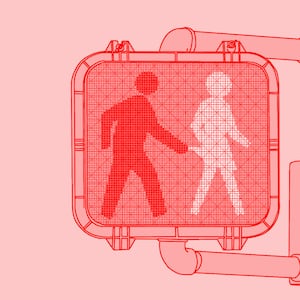Former Metropolitan Police officer Wayne Couzens may have used the pretense of Britain’s COVID-19 lockdown rules to falsely arrest, handcuff, rape, and murder 33-year-old marketing executive Sarah Everard, a sentencing court heard Wednesday. Couzens pleaded guilty to Everard’s brutal rape and murder and will be sentenced this week.
Chief prosecutor Tom Little told the court that Couzens’ behavior was premeditated after he clocked off his 12-hour shift on the morning of March 4. He rented a white Vauxhall Astra car and then, hours before patrolling for a victim, he went to a nearby Tesco grocery store and bought a pack of 14 ponytail holders and adhesive tape.
“This is a significant purchase, and part of the defendant’s plans,” Little told the sentencing court Wednesday morning.
Couzens, a married diplomatic-protection officer, then found Everard, who Little reiterated was “just walking home” alone that evening. Little said the two did not know each other previously. He said Couzens stopped Everard after she had been at a friend’s house for dinner during the height of the 2021 COVID-19 pandemic lockdown in England.
Knowing she may have skirted lockdown rules, she likely agreed to get into Couzens’ car after he showed her his badge or identified himself as a cop, Little said. Surveillance cameras on two passing buses and a witness account say Couzens handcuffed her and put her in the back of his car.
A female witness who saw Couzens detain Everard told Little that she was compliant “with her head down and did not appear to be arguing.” Little then told the sentencing court that the woman “believed she was witnessing an undercover police officer arresting a woman whom she assumed must have done something wrong,” but in reality, Little said: “They were in fact witnessing the kidnapping of Sarah Everard.”
The prosecutor went on: “She was detained by fraud. The defendant using his warrant card and handcuffs as well as his other police-issue equipment to effect a false arrest.”
He then drove her some 80 miles to a forested area near property he owned with his wife where he strangled, raped, and killed Everard, before putting her body in a large green garbage bag and dumping it into a stream.
Everard had talked to her boyfriend on the phone for 14 minutes before Couzens stopped her and was supposed to text her friend that she made it home safely. When she failed to text or respond to calls, the friend and her boyfriend searched for her at home before reporting her missing. A manhunt ensued and her body was found six days after she disappeared.
During the manhunt, police were able to identify Couzens as the last person to see her. When questioned, he made up a fanciful story, telling detectives—his colleagues—that he had hit hard times and owed a gang of Eastern Europeans money or “a girl” after he had underpaid a prostitute they were pimping. He admitted to taking Everard but said he handed her over to three men in a van and had no idea what happened next.
But detectives found a broken piece of the SIM card from Everard’s phone embedded in the rental-car carpet and determined from his own cellphone data that he had been present with her in the forest. His perplexed wife told investigators that he was not a violent man and that he acted “totally normal” in the days after the heinous crime.
He did not cooperate with the investigation but pleaded guilty to the charges, which carry a maximum sentence of life in prison, which in the U.K. could still mean he is eligible for parole unless the court rules he must spend the rest of his life in jail. The sentence is expected Thursday.
Everard’s murder sparked nationwide demonstrations about police brutality and an increase in violence and harassment against women in the U.K.—especially against women walking alone.







